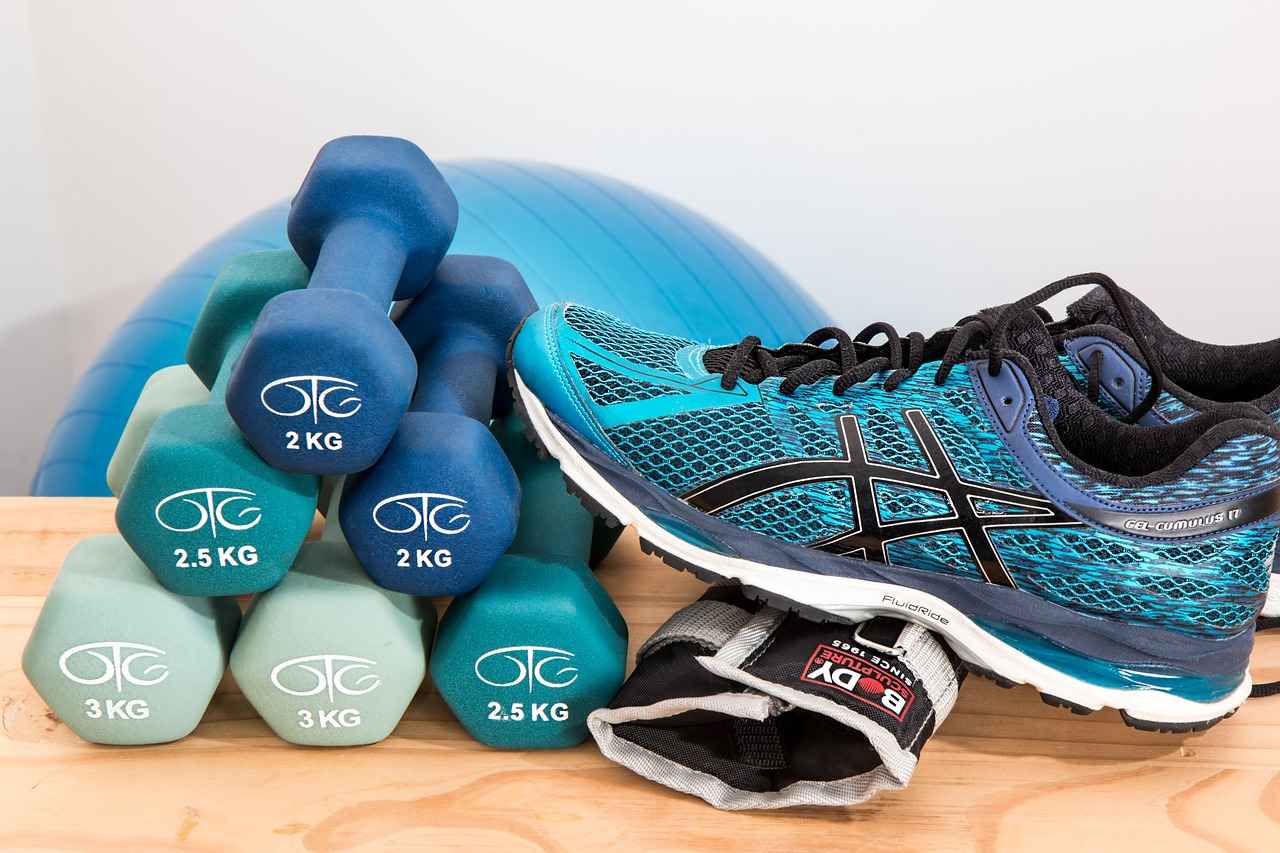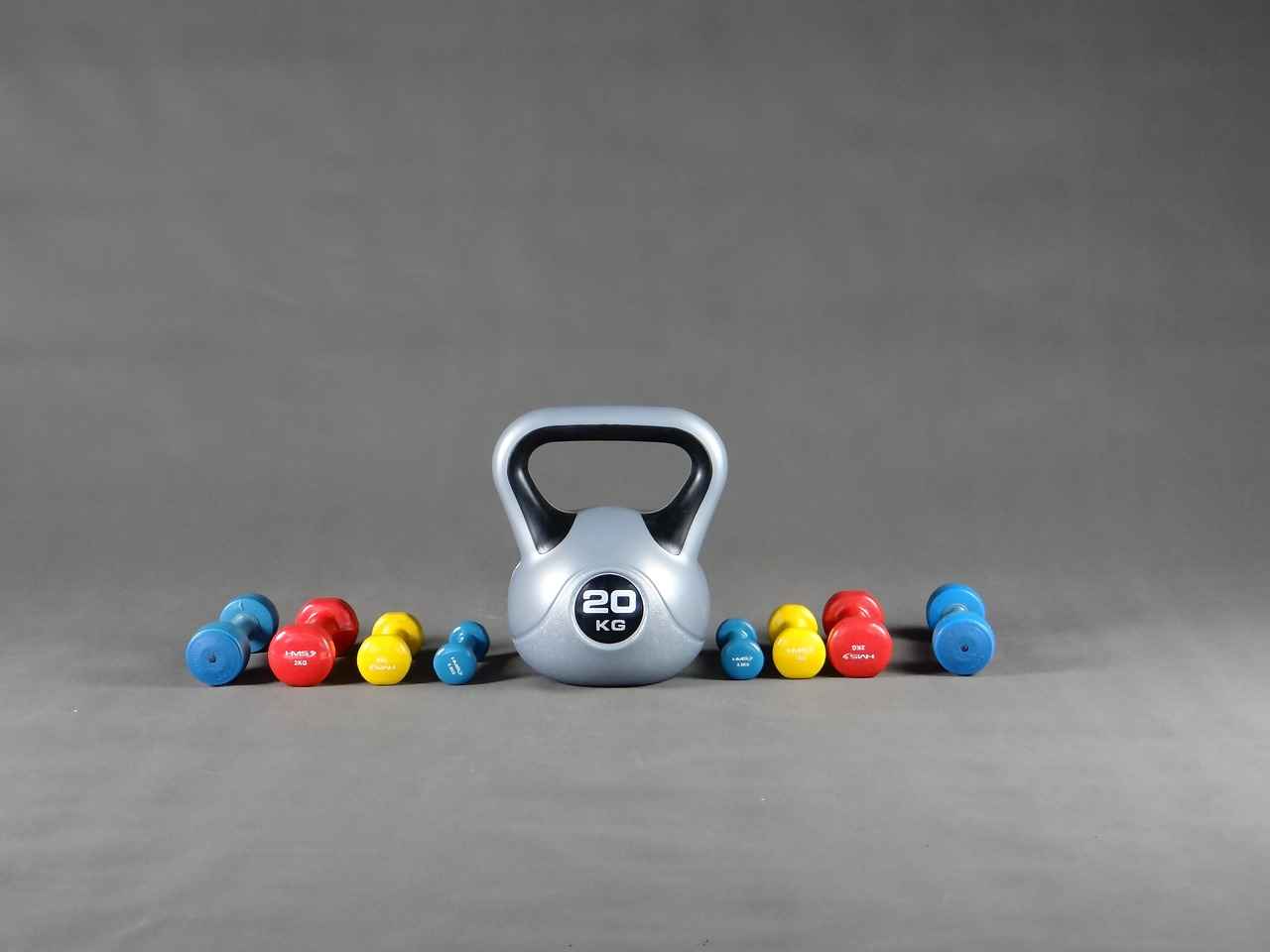This article delves into the best smartwatches currently available on the market. We will examine their standout features, the benefits they offer, and how they can significantly enhance fitness tracking and productivity for users looking to optimize their daily routines.
What to Look for in a Smart Watch
When selecting a smartwatch, it is essential to consider several key features:
- Battery Life: Opt for models with long-lasting batteries to avoid frequent recharging.
- Compatibility: Ensure the smartwatch is compatible with your smartphone’s operating system.
- Fitness Tracking: Look for advanced health metrics, such as heart rate, sleep analysis, and activity tracking.
Best Smart Watches for Fitness Tracking
For fitness enthusiasts, tracking workouts and health metrics accurately is paramount. Here are some top models:
- Apple Watch Series 8: Renowned for its comprehensive health tracking, including ECG and blood oxygen monitoring.
- Garmin Forerunner 245: Ideal for runners with built-in GPS and advanced performance metrics.
- Fitbit Charge 5: Offers an excellent balance of fitness and health features at an affordable price.
Heart Rate Monitoring Features
Accurate heart rate monitoring is crucial for effective fitness tracking. Smartwatches utilize advanced sensors to provide real-time heart rate data, enabling users to optimize their workouts.
GPS Functionality in Smart Watches
GPS tracking is essential for outdoor activities like running and cycling. Many smartwatches come equipped with GPS to accurately track distance and pace, enhancing the overall fitness experience.
Activity Tracking Capabilities
Comprehensive activity tracking allows users to monitor daily movements effectively. Smartwatches can provide insights into steps taken, calories burned, and even active minutes throughout the day.
Smart Watches for Health Monitoring
Health monitoring features extend beyond fitness. Many smartwatches now include:
- Sleep Tracking: Helps users understand their sleep patterns.
- Stress Monitoring: Offers insights into stress levels and relaxation techniques.
- ECG Capabilities: Provides heart health assessments directly from the wrist.
Top Smart Watches for Productivity
Smartwatches can significantly boost productivity by integrating seamlessly with daily tasks. The following models excel in this area:
- Samsung Galaxy Watch 5: Features robust notification management and calendar integration.
- Apple Watch SE: Offers excellent app support for emails and reminders.
Integration with Smartphones
Seamless integration with smartphones enhances functionality. Many smartwatches connect effortlessly with both Android and iOS devices, improving user experience and accessibility.
Voice Assistant Features
Voice assistants on smartwatches can streamline tasks. Users can manage reminders, calls, and messages through simple voice commands, making multitasking easier.
Comparative Analysis of Leading Brands
When considering which smartwatch to purchase, it’s important to compare popular brands:
- Apple vs. Samsung: Both brands offer unique features and user experiences, catering to different preferences.
- Garmin and Fitbit: Known for their fitness-centric designs, these brands focus on health and wellness.

What to Look for in a Smart Watch
When it comes to selecting the ideal smartwatch, understanding key features is essential for making an informed decision. The right smartwatch can significantly enhance your lifestyle, whether for fitness tracking, productivity, or simply staying connected. Below are crucial criteria to consider before making a purchase:
- Battery Life: A smartwatch with a long-lasting battery is vital. Users should look for models that offer at least a few days of battery life on a single charge, especially if they plan to use features like GPS and heart rate monitoring regularly.
- Compatibility: Ensure that the smartwatch is compatible with your smartphone’s operating system. Most smartwatches work seamlessly with either iOS or Android, but some features may be limited based on the device you own.
- Fitness Tracking Capabilities: If fitness is a priority, look for smartwatches that offer comprehensive tracking features, including heart rate monitoring, step counting, and workout modes. Advanced options may also include VO2 max estimation and recovery insights.
- Display Quality: A clear, responsive display enhances user experience. Consider whether you prefer an AMOLED or LCD screen, as this affects visibility in different lighting conditions.
- Durability: Smartwatches often face daily wear and tear. Look for models that are water-resistant and made from durable materials, ensuring they can withstand various activities and environments.
- App Ecosystem: The range of available apps can greatly influence the functionality of your smartwatch. Check for compatibility with popular health and productivity apps that you may want to use.
- Style and Comfort: Since a smartwatch is worn daily, its design and comfort should not be overlooked. Choose a style that fits your personal aesthetic and a band that feels comfortable during extended wear.
By considering these criteria, you can make a more informed decision when selecting a smartwatch that meets your needs and enhances your daily activities.

Best Smart Watches for Fitness Tracking
For fitness enthusiasts, having the right smartwatch can be a game changer. These devices not only help in tracking workouts but also provide valuable insights into health metrics. In this section, we will explore some of the best smartwatches for fitness tracking, focusing on their capabilities in heart rate monitoring, GPS functionality, and overall activity tracking.
Accurate heart rate monitoring is essential for optimizing workouts and assessing fitness levels. Many smartwatches today come equipped with advanced sensors that offer real-time heart rate data. For instance, models like the Garmin Forerunner and the Apple Watch Series utilize photoplethysmography technology to measure heart rate continuously, ensuring users can maintain their target heart rate zones during exercise.
For outdoor enthusiasts, GPS functionality is a must-have feature. Smartwatches with built-in GPS, such as the Fitbit Charge and the Samsung Galaxy Watch, allow users to track their routes accurately while running or cycling. This feature not only records distance but also provides pace information and maps of the workout route, which is invaluable for performance analysis.
Beyond heart rate and GPS, comprehensive activity tracking is crucial for users aiming to monitor their daily movements. Smartwatches like the Polar Vantage and the Huawei Watch GT offer detailed insights into steps taken, calories burned, and even specific workouts. This data helps users set realistic goals and stay motivated.
Many smartwatches also incorporate health monitoring features that go beyond fitness. Devices such as the Withings Steel HR and the Apple Watch provide sleep tracking, stress level assessments, and even ECG capabilities. These features help users maintain a holistic view of their health, allowing for better lifestyle choices.
In summary, choosing the right smartwatch can significantly enhance fitness tracking and overall health management. With features like advanced heart rate monitoring, GPS functionality, and comprehensive activity tracking, fitness enthusiasts have a variety of options to consider in their quest for optimal health.
Heart Rate Monitoring Features
Heart rate monitoring has become an essential feature in modern smartwatches, particularly for fitness enthusiasts who strive to optimize their workouts. The ability to track heart rate in real-time not only aids in assessing physical exertion but also helps in managing overall health. This section delves into how various smartwatches utilize advanced sensor technology to deliver accurate heart rate data during physical activities.
Most smartwatches employ optical sensors that use photoplethysmography (PPG) technology to measure heart rate. These sensors emit light into the skin and detect the amount of light that is reflected back, which varies with blood flow. This method allows for continuous monitoring, making it possible to gather heart rate data throughout various types of workouts.
Some of the leading brands, such as Apple, Garmin, and Fitbit, have developed sophisticated algorithms to enhance the accuracy of heart rate readings. For instance, Garmin’s Elevate heart rate technology is designed to provide precise data even during high-intensity activities, ensuring that users receive reliable feedback on their cardiovascular performance.
| Brand | Technology | Key Features |
|---|---|---|
| Apple | Optical Sensors | ECG, Blood Oxygen Monitoring |
| Garmin | Elevate Technology | VO2 Max Estimation, Stress Tracking |
| Fitbit | PurePulse Technology | Sleep Stages, Active Zone Minutes |
Moreover, many smartwatches offer features that allow users to set heart rate zones tailored to their fitness goals. This functionality enables individuals to train more effectively by ensuring they remain within their desired intensity levels during workouts. Notifications can also be programmed to alert users if their heart rate exceeds or drops below specific thresholds, providing an added layer of safety during exercise.
In summary, the evolution of heart rate monitoring technology in smartwatches has significantly enhanced fitness tracking capabilities. With accurate, real-time data, users can make informed decisions about their health and fitness routines, leading to better outcomes and improved overall well-being.
GPS Functionality in Smart Watches
GPS functionality in smartwatches has become a vital feature for outdoor enthusiasts, particularly for runners and cyclists. With the ability to track location, distance, and pace, GPS technology enhances the overall experience of outdoor activities. This section delves into how various smartwatches integrate GPS tracking and why it is indispensable for those engaged in fitness pursuits.
For runners, having a smartwatch equipped with GPS allows for accurate tracking of routes and performance metrics. This feature enables users to analyze their runs, helping them to set and achieve personal goals. Many smartwatches come with built-in maps and route planning, making it easier to explore new trails without the fear of getting lost. Furthermore, real-time data on pace and distance can motivate runners to push their limits, leading to improved performance.
Similarly, cyclists benefit greatly from GPS functionality. Smartwatches designed for cycling often include features such as turn-by-turn navigation and the ability to track elevation changes. This information is crucial for cyclists who want to optimize their routes and understand their performance over varying terrains. Additionally, many models allow for integration with cycling apps, providing detailed analytics on speed, cadence, and overall ride statistics.
Moreover, the safety aspect of GPS cannot be overlooked. Many smartwatches offer features like live tracking and emergency alerts, which can be lifesaving during outdoor activities. Users can share their location with friends or family, ensuring that someone is aware of their whereabouts while they are out on a run or a ride.
In conclusion, the integration of GPS functionality in smartwatches significantly enhances the experience for runners and cyclists alike. With precise tracking capabilities, safety features, and the ability to analyze performance, these devices play a crucial role in helping users achieve their fitness goals.
Activity Tracking Capabilities
In today’s fast-paced world, have become essential for individuals looking to maintain an active lifestyle. Comprehensive activity tracking helps users monitor their daily movement, providing valuable insights into their health and fitness. This section evaluates various smartwatch models that excel in delivering detailed metrics, including steps taken, calories burned, and overall activity levels.
Modern smartwatches are equipped with advanced sensors that accurately capture user movements throughout the day. These devices track not only the number of steps but also the intensity of physical activities, allowing users to gain a better understanding of their daily energy expenditure. Real-time feedback is a crucial feature, as it motivates users to reach their fitness goals and encourages them to stay active.
| Smartwatch Model | Steps Tracking | Calories Burned | Additional Features |
|---|---|---|---|
| Fitbit Charge 5 | Yes | Yes | Heart Rate Monitor, Sleep Tracking |
| Apple Watch Series 8 | Yes | Yes | ECG, Blood Oxygen Monitoring |
| Garmin Forerunner 245 | Yes | Yes | GPS, VO2 Max Estimation |
Moreover, many smartwatches offer features such as goal setting and personalized activity reminders. Users can set daily targets for steps or calories, which can be adjusted based on their progress and fitness levels. This customization enhances user engagement and helps in achieving long-term fitness goals.
In addition to tracking daily movements, some smartwatches also provide insights into sedentary behavior. They remind users to stand up and move after prolonged periods of inactivity, promoting a more active lifestyle. This holistic approach to activity tracking ensures that users not only monitor their exercise but also cultivate healthier habits throughout the day.
Overall, the evolution of activity tracking in smartwatches has transformed how individuals approach fitness and health. By providing detailed insights and encouraging healthy behaviors, these devices play a pivotal role in helping users lead more active and fulfilling lives.
Smart Watches for Health Monitoring
In today’s fast-paced world, health monitoring features in smartwatches have become increasingly essential for individuals looking to maintain their well-being. Beyond just fitness tracking, these advanced devices offer a range of functionalities that provide valuable insights into various aspects of health. This section delves into the significant health monitoring capabilities of smartwatches, including sleep tracking, stress monitoring, and ECG (electrocardiogram) features.
Sleep Tracking
Quality sleep is crucial for overall health, and many smartwatches now come equipped with sophisticated sleep tracking technology. These devices monitor sleep patterns, providing users with insights into sleep duration and sleep quality. By analyzing data such as light and deep sleep stages, smartwatches help users identify factors that may disrupt their sleep, allowing for better sleep hygiene practices.
Stress Monitoring
In addition to sleep, managing stress is vital for maintaining a healthy lifestyle. Several smartwatches offer stress monitoring features that track physiological indicators like heart rate variability. By assessing these metrics, users can receive real-time feedback on their stress levels and access guided breathing exercises or mindfulness sessions to help alleviate stress.
ECG Capabilities
Among the most advanced health features found in modern smartwatches is the ECG capability. This function allows users to take an electrocardiogram directly from their wrist, providing insights into heart health. By detecting irregular heart rhythms, this feature can alert users to potential health issues, prompting timely medical consultations.
| Health Feature | Benefits |
|---|---|
| Sleep Tracking | Improves sleep quality and duration insights. |
| Stress Monitoring | Helps manage stress levels through real-time feedback. |
| ECG Capability | Monitors heart health and detects irregularities. |
In summary, the integration of health monitoring features in smartwatches not only enhances fitness tracking but also supports users in achieving a comprehensive understanding of their health. With capabilities like sleep tracking, stress monitoring, and ECG, these devices empower individuals to take proactive steps towards better health management.

Top Smart Watches for Productivity
Smartwatches have evolved into essential tools for enhancing productivity in our fast-paced lives. By integrating seamlessly with daily tasks, these devices empower users to manage their time and responsibilities more effectively. This section delves into the top smartwatches that excel in managing notifications, calendars, and emails, ensuring you stay organized and focused throughout the day.
- Apple Watch Series 8: Renowned for its robust notification management, the Apple Watch Series 8 allows users to receive and respond to messages, calls, and alerts directly from their wrist. Its integration with the iOS ecosystem makes it an excellent choice for Apple users looking to streamline their daily tasks.
- Samsung Galaxy Watch 5: This smartwatch offers a comprehensive suite of productivity features, including calendar synchronization and email notifications. With its sleek design and vibrant display, the Galaxy Watch 5 makes it easy to stay updated on your schedule without constantly checking your phone.
- Garmin Venu 2: While primarily known for fitness tracking, the Garmin Venu 2 also excels in productivity. It provides smart notifications and allows users to respond to texts and emails, making it a versatile choice for those who prioritize both health and productivity.
- Fitbit Versa 3: The Fitbit Versa 3 combines health tracking with productivity features. Users can access calendar events and receive notifications, all while monitoring their fitness metrics. Its long battery life ensures you stay connected throughout the day.
In addition to these models, many smartwatches now offer voice assistant features, enabling users to manage tasks hands-free. Whether setting reminders, checking the weather, or sending messages, voice commands can significantly enhance your productivity. Furthermore, the ability to integrate with various smartphone operating systems ensures that users can enjoy a seamless experience, regardless of their device.
Overall, the right smartwatch can be a game-changer for productivity, helping you stay organized and focused while juggling multiple responsibilities. By considering features such as notification management, calendar integration, and voice assistance, you can select a model that best suits your lifestyle and enhances your daily efficiency.
Integration with Smartphones
The integration of smartwatches with smartphones is a pivotal feature that significantly enhances user functionality and overall experience. In today’s fast-paced world, having a smartwatch that seamlessly connects with popular mobile operating systems like iOS and Android is essential for maximizing efficiency and convenience.
Smartwatches serve as an extension of your smartphone, allowing users to receive notifications, manage calls, and respond to messages directly from their wrist. This convenience is especially beneficial for individuals who are constantly on the go, as it minimizes the need to frequently check their phones. For instance, with just a few taps on the smartwatch, users can access their calendars, check emails, and even control music playback without needing to pull out their smartphones.
Moreover, the integration extends to various applications that enhance daily productivity. Many smartwatches are compatible with fitness and health tracking apps, enabling users to monitor their workouts, track their heart rate, and even analyze their sleep patterns. This cross-compatibility ensures that users can sync their health data effortlessly, providing a comprehensive overview of their wellness journey.
Additionally, voice assistants such as Siri, Google Assistant, and Alexa are integrated into many smartwatches, allowing users to perform tasks hands-free. This feature is particularly useful for multitasking, enabling users to set reminders, check the weather, or navigate routes while keeping their hands free for other activities.
In conclusion, the seamless integration of smartwatches with smartphones not only enhances user experience but also empowers individuals to manage their daily lives more efficiently. As technology continues to evolve, the connectivity between these devices will likely become even more sophisticated, further enriching the user experience and functionality.
Voice Assistant Features
In today’s fast-paced world, voice assistants on smartwatches have become indispensable tools for enhancing productivity and convenience. These cutting-edge technologies enable users to perform a variety of tasks without needing to physically interact with their devices. Let’s delve into how these voice command features streamline everyday activities, making life easier for smartwatch users.
- Managing Reminders: Voice assistants allow users to create, modify, and delete reminders effortlessly. By simply speaking a command, users can set reminders for important tasks, ensuring they stay organized and on top of their schedules.
- Making Calls: Hands-free calling is another significant advantage of voice assistants. Users can initiate calls or send messages by just using their voice, which is particularly useful when multitasking or when hands are occupied.
- Checking Notifications: Smartwatches equipped with voice assistants can read out notifications, allowing users to stay updated on messages, emails, and alerts without needing to glance at their screens.
- Controlling Smart Home Devices: Many smartwatches integrate seamlessly with smart home ecosystems. Users can issue voice commands to control lights, thermostats, and other connected devices right from their wrists.
- Accessing Information: Voice assistants can provide quick answers to queries, from weather forecasts to traffic updates, enhancing the user experience by delivering information on demand.
The integration of voice assistants into smartwatches not only improves efficiency but also promotes a more hands-free lifestyle. As technology continues to evolve, we can expect these features to become even more sophisticated, further streamlining our daily routines.

Comparative Analysis of Leading Brands
In the ever-evolving world of wearable technology, smartwatches have emerged as essential tools for both fitness enthusiasts and tech-savvy individuals. This section provides a comprehensive comparative analysis of leading smartwatch brands, focusing on their strengths and weaknesses in terms of features, design, and user satisfaction. By examining these aspects, consumers can make informed decisions tailored to their specific needs.
- Apple Watch: Known for its sleek design and seamless integration with iOS devices, the Apple Watch offers a plethora of features including health monitoring, customizable watch faces, and a robust app ecosystem. However, its premium price point may deter budget-conscious buyers.
- Samsung Galaxy Watch: Samsung’s offering stands out with its vibrant display and long battery life. It supports both Android and iOS, making it versatile for users of different platforms. While it excels in fitness tracking, some users find the interface less intuitive compared to competitors.
- Garmin: Renowned for its fitness-focused smartwatches, Garmin provides advanced metrics for athletes, including VO2 max and recovery time. While its design may not be as fashionable as others, the durability and functionality make it a favorite among serious fitness enthusiasts.
- Fitbit: Specializing in health and fitness tracking, Fitbit devices are user-friendly and offer excellent battery life. Although they may lack some smartwatch features, their focus on health metrics appeals to many users looking to enhance their wellness journey.
When evaluating these brands, it’s important to consider factors like battery life, app compatibility, and design preferences. Each brand showcases unique strengths that cater to different user requirements. For instance, those prioritizing fitness tracking may lean towards Garmin or Fitbit, while tech enthusiasts might prefer the comprehensive features of the Apple Watch or Samsung Galaxy Watch.
Ultimately, the best choice will depend on individual priorities, whether it be fitness monitoring, productivity tools, or style. By understanding the strengths and weaknesses of each brand, consumers can confidently select a smartwatch that aligns with their lifestyle.
Apple vs. Samsung Smart Watches
When it comes to the smartwatch market, Apple and Samsung are two giants that stand out, each offering unique features that cater to different user preferences. This comparison aims to illuminate the strengths of their flagship models, helping potential buyers make an informed decision.
Apple Watch Series is known for its seamless integration with the Apple ecosystem. Users benefit from features like Apple Pay, allowing for contactless payments, and a wide range of health monitoring capabilities, including ECG and blood oxygen monitoring. The watchOS interface is user-friendly, providing access to a plethora of apps and notifications right on the wrist. Additionally, the Apple Watch excels in fitness tracking, offering detailed metrics and personalized coaching.
On the other hand, the Samsung Galaxy Watch series offers a robust alternative with its Wear OS integration, enhancing compatibility with both Android and iOS devices. Samsung’s smartwatches are lauded for their long battery life and vibrant display, making them ideal for users who prioritize aesthetics and functionality. The Galaxy Watch also features advanced health tracking capabilities, including sleep tracking and stress management tools, which are essential for holistic wellness.
Both brands provide unique voice assistant features, with Apple’s Siri and Samsung’s Bixby allowing users to manage tasks hands-free. However, the choice between the two often comes down to ecosystem preference: Apple users may find the Apple Watch more appealing due to its deep integration with other Apple products, while Android users may gravitate towards Samsung for its versatility.
In summary, whether you choose the Apple Watch for its extensive health features and ecosystem or the Samsung Galaxy Watch for its design and battery longevity, both options offer exceptional performance tailored to different lifestyles.
Garmin and Fitbit: The Fitness Focus
Garmin and Fitbit have established themselves as leaders in the realm of fitness technology, each bringing unique strengths to the table. Both brands offer a range of smartwatches and fitness trackers that cater specifically to health and fitness enthusiasts, making them popular choices for those serious about their wellness journeys.
One of the standout features of Garmin devices is their advanced GPS technology, which is crucial for outdoor activities such as running, cycling, and hiking. Garmin watches provide accurate distance tracking and route mapping, allowing users to monitor their performance in real-time. Additionally, their devices often come equipped with specialized modes for different sports, ensuring that users receive tailored metrics that enhance their training.
On the other hand, Fitbit focuses heavily on user-friendly interfaces and community engagement. Their smartwatches are designed to motivate users through challenges and social features, making fitness more enjoyable. Fitbit devices also excel in sleep tracking and overall wellness metrics, offering insights that help users improve their sleep quality and manage stress levels effectively.
Both brands prioritize health monitoring features, but they approach them differently. Garmin offers in-depth performance analytics, such as VO2 max estimates and recovery time recommendations, which are particularly beneficial for serious athletes. Fitbit, meanwhile, emphasizes holistic health, providing tools for mindfulness and guided breathing exercises alongside fitness tracking.
In terms of design, both Garmin and Fitbit create devices that are not only functional but also stylish. Garmin’s rugged designs appeal to outdoor enthusiasts, while Fitbit’s sleek and modern aesthetics attract a broader audience looking for everyday wearability.
Ultimately, whether one prefers Garmin or Fitbit often comes down to personal fitness goals and lifestyle preferences. Both brands offer exceptional products tailored to enhance the health and fitness experience, ensuring that users can track their progress and stay motivated on their journeys.
Frequently Asked Questions
- What features should I look for in a smartwatch?
When choosing a smartwatch, consider features like battery life, fitness tracking capabilities, and compatibility with your smartphone. A good smartwatch should also have a user-friendly interface and reliable health monitoring features.
- Are smartwatches effective for fitness tracking?
Absolutely! Many smartwatches offer advanced fitness tracking features including heart rate monitoring, GPS functionality, and comprehensive activity tracking. They can help you keep tabs on your workouts and overall health metrics.
- Can I use a smartwatch to manage my daily tasks?
Yes! Smartwatches can significantly boost your productivity by allowing you to manage notifications, calendars, and even emails directly from your wrist. With voice assistant features, you can handle tasks hands-free!
- How do Apple and Samsung smartwatches compare?
Apple and Samsung both offer excellent smartwatches, but they cater to different preferences. Apple’s watches are known for their seamless integration with iOS, while Samsung’s models often provide more customization options for Android users.
- Are Garmin and Fitbit good for fitness enthusiasts?
Definitely! Garmin and Fitbit are renowned for their fitness-centric designs and features. They focus on providing accurate health data and tracking capabilities, making them ideal for anyone serious about fitness.














